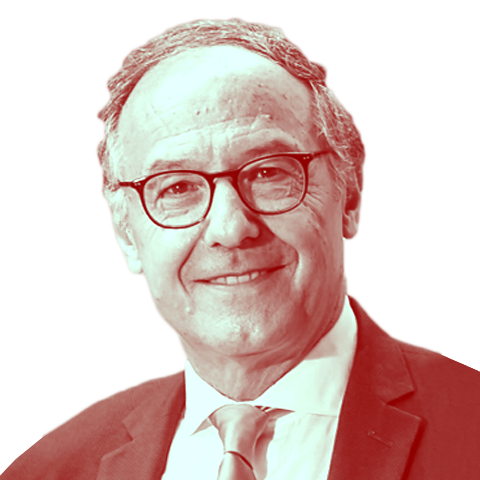
Horizon Europe: Swiss universities fear brain drain

Being excluded from the European Union’s flagship research funding programme Horizon EuropeExternal link has increased the risks of a brain drain of scientists and young start-ups from Switzerland, top university officials have warned.
“We will of course develop cooperation with the United States and China, but the natural place for our researchers to collaborate remains Europe,” declared Yves Flückiger, president of Swissuniversities and rector of the University of Geneva, in an interview with Le Temps newspaper on Monday.
Researchers at Swiss universities have been on tenterhooks about their ability to join the EU’s Horizon programme, after Switzerland’s decision to pull the plug on a draft treaty binding it more tightly to the bloc hampered access.
The EU has relegated Switzerland to non-associated country status in the Horizon EuropeExternal link programme, notably cutting off Swiss researchers from funding by the European Commission.
The risk of a brain drain is “higher than before, even if it is impossible to quantify. At EPFL [Federal Institute of Technology Lausanne], we have about twenty superstars. If we lose two of them, it’s already serious. This is quickly known and our reputation suffers, that’s obvious,” said Michael Hengartner, president of the ETH Board.
After the controversial Swiss vote to re-introduce immigration quotas for EU citizens, Swiss participation in the EU Horizon scheme fell by half. And Swiss research lost 90% of its coordinator roles in European projects, said Hengartner.

More
EU confirms Swiss ‘third country’ status for research projects
“We were able to participate in projects, but we were deprived of their leadership, and this in areas where we are at the forefront of technology,” said Hengartner.
Flückiger warned that the current situation was pushing some promising young companies to leave Switzerland or open branches in Europe. “Some 10% of the life science companies supported by the Fongit incubator in Geneva are considering moving their activities further across the border. Two of them have already left the incubator’s offices,” he said.
The Swiss government has decided to allocate up to CHF400 million ($434 million) this year for scientists wishing to participate in Europe’s flagship research project as a way of plugging financial shortfalls.
Horizon Europe is one of the important issues on the table at Monday’s high-level meeting in Brussels between Swiss Foreign Minister Ignazio Cassis and European Commission Vice President Maroš Šefcovic to discuss ties.
Relations between Switzerland and its biggest trading partner deteriorated in May when the Swiss government unilaterally walked away from seven years of negotiations over an institutional framework agreement with Brussels to oversee future long-term ties.

More
Why is Horizon Europe important for Switzerland and the European Union?

In compliance with the JTI standards
More: SWI swissinfo.ch certified by the Journalism Trust Initiative

























You can find an overview of ongoing debates with our journalists here . Please join us!
If you want to start a conversation about a topic raised in this article or want to report factual errors, email us at english@swissinfo.ch.